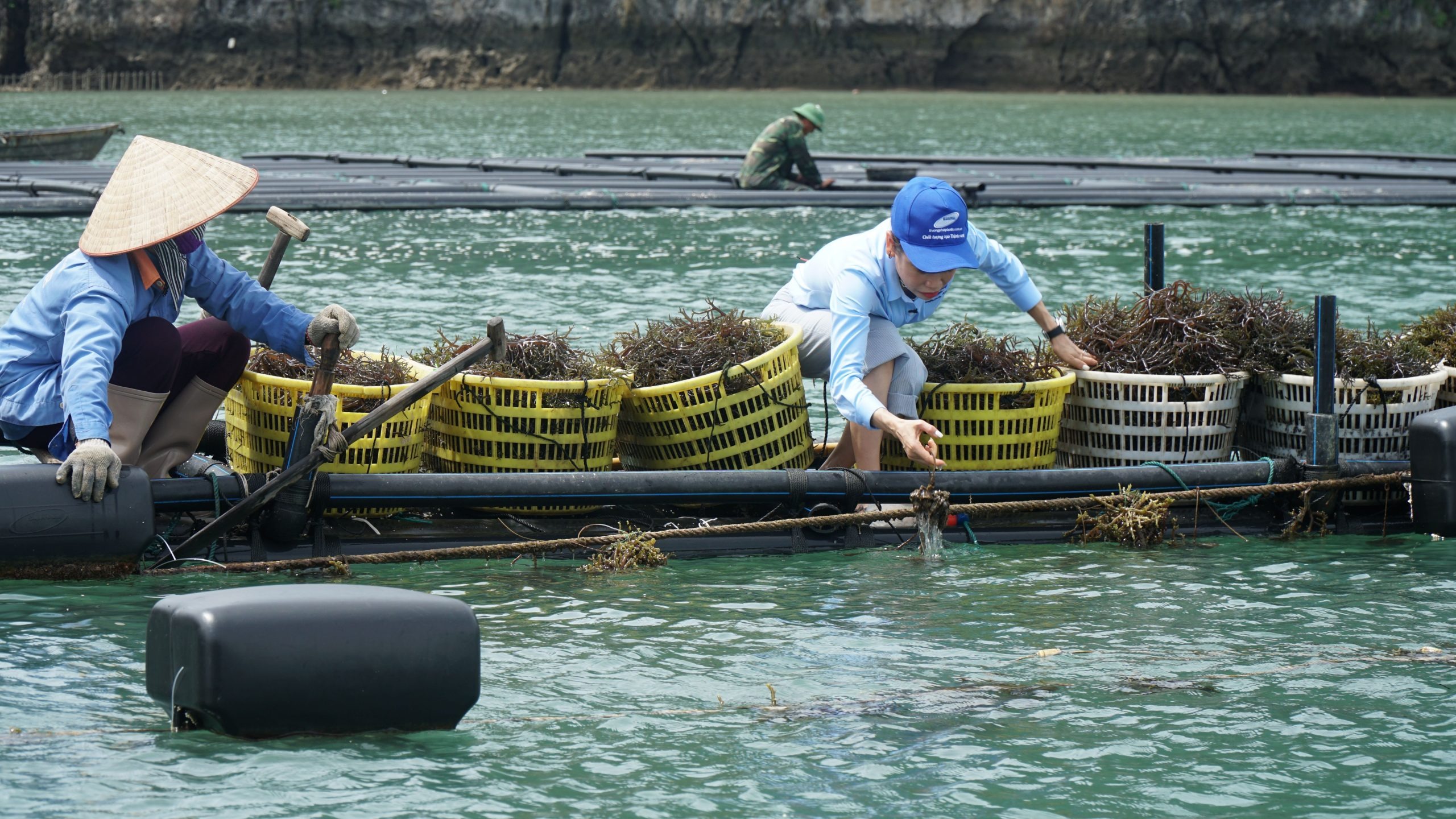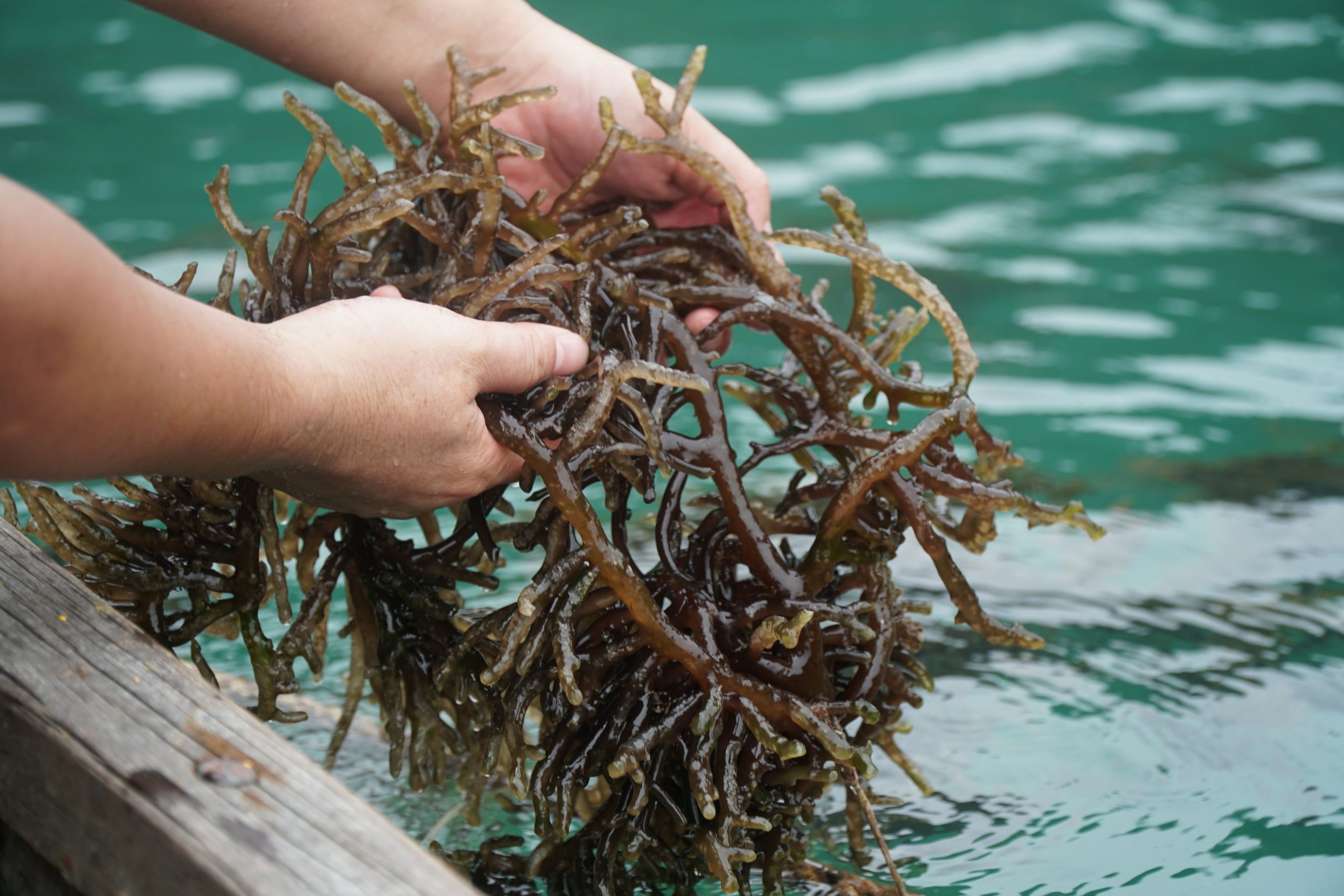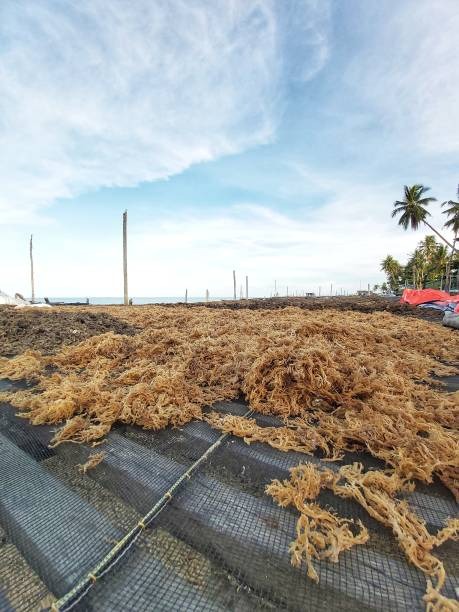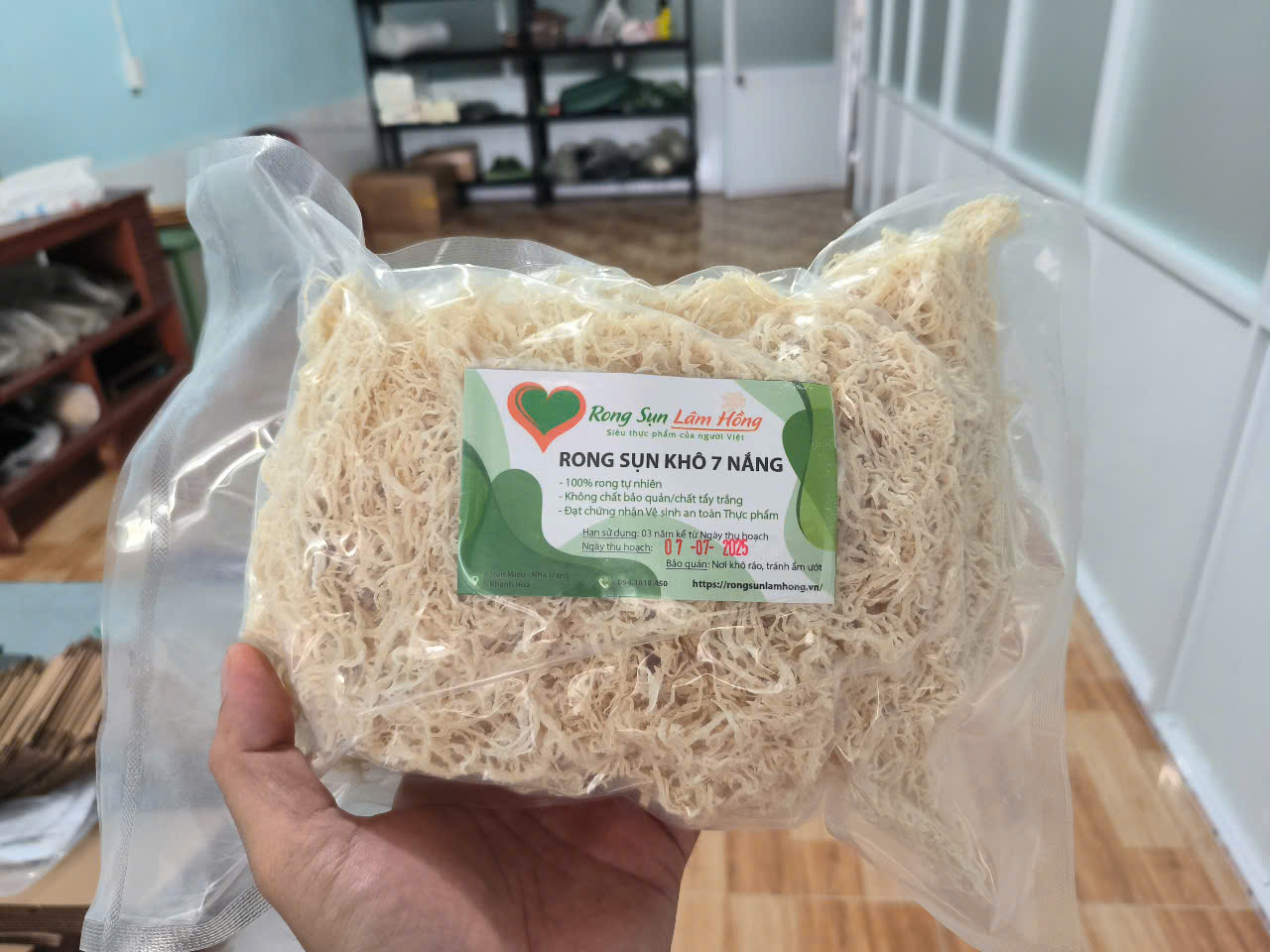Ensuring a sustainable cottonii harvest plays a critical role in stabilizing the global supply of raw materials, particularly for manufacturers whose products rely on this resource. Eco-friendly seaweed sourcing is a key factor in enhancing a company's competitive advantage, reducing costs, and improving growth efficiency.
If your business is genuinely committed to sustainable red seaweed practices and aims to attract a growing base of customers seeking plant-based, all-natural products, we invite you to explore the content below.
1. Why sustainable cottonii matters for manufacturers?
Cottonii (Eucheuma cottonii), a red seaweed rich in carrageenan, is widely used in food, personal care, and pharmaceutical production. However, how that Cottonii is harvested can drastically impact your bottom line and brand reputation.
By choosing sustainable cottonii harvest sources, manufacturers benefit from:
- Stable supply chains with less risk from overfishing or climate disruptions
- Higher-quality biomass, reducing the need for post-processing or additives
- Positive brand alignment with consumer trends and ESG standards

Images of the seaweed farming site at Lam Hong Sea Moss
2. Competitive advantages of sustainable cottonii sourcing
Let’s break down the real-world competitive edge manufacturers gain when they shift to sustainable cottonii:
2.1. Lower operational costs
Sustainable farms often produce cleaner, more consistent raw materials, requiring less energy and chemical input during processing. That translates to:
- Less waste
- Shorter processing time
- Reduced input costs per kilogram of final product
- Over time, these savings significantly improve ROI, particularly for high-volume manufacturers.
2.2. Supply chain resilience
Working with farms committed to eco-friendly practices means:
- Predictable harvest cycles (no wild harvesting unpredictability)
- Compliance with export/import regulations related to sustainability
- Long-term contracts with traceable origins
Manufacturers can secure reliable supplies while reducing risks associated with raw material fluctuations or environmental crackdowns.

Seaweed being harvested at Lam Hong Sea Moss
2.3. Stronger brand positioning
Consumers are more conscious than ever. Products labeled "plant-based," "sustainably sourced," or "ocean-friendly" enjoy greater trust and loyalty. Using sustainably harvested Cottonii allows manufacturers to:
- Strengthen label claims with confidence
- Tap into premium markets (clean-label, vegan, eco-friendly)
- Align with major retailers’ sustainability goals (many now require supply chain transparency)
In a competitive market, brand story and sourcing ethics matter as much as product performance.
3. Investing in sustainable cottonii sourcing: a long-term roi perspective
Investing in a sustainable Cottonii supply can yield high long-term returns on investment (ROI), although it may initially require higher upfront costs. The sustainable ROI from Cottonii stems from various factors such as enhanced brand value, growing demand for eco-friendly products, and access to niche markets. However, it is important to note that the ROI can vary depending on several factors, including the scale of investment, technology employed, and management effectiveness.

Seaweed being dried at Lam Hong Sea Moss
ROI analysis of investing in sustainable cottonii:
-
Initial costs:
Investing in infrastructure, technology, and staff training for sustainable Cottonii cultivation tends to be higher than for conventional methods.
Businesses must also consider costs associated with organic or sustainability certifications.
-
Revenue potential:
Premium pricing: Sustainable Cottonii typically commands a higher market price due to increasing demand and the added brand value it brings.
Access to niche markets: It enables access to specialized markets with a high demand for sustainable and environmentally friendly products.
Reduced legal risks: Compliance with environmental regulations and sustainability standards helps mitigate legal risks or penalties.
Enhanced brand image: Committing to sustainable Cottonii sourcing contributes to a positive brand reputation, attracting customers and partners who prioritize sustainability.
Competitive advantage: Eco-friendly products offer a competitive edge, particularly as consumers become more conscious of environmental issues.
-
Key factors influencing roi:
Scale of production: Larger-scale operations can reduce per-unit costs and improve economic efficiency.
Technology adoption: Utilizing modern technologies can optimize production processes, minimize waste, and boost productivity.
Management efficiency: Effective management of the supply chain, product quality, and marketing efforts significantly impacts ROI.
Market fluctuations: Changes in Cottonii pricing and other market variables can affect profitability.
Operational costs: Consideration must also be given to ongoing operational expenses, maintenance, and other production-related costs.
However, for businesses that do not rely heavily on Cottonii or do not prioritize sustainable sourcing as a strategic objective, it may be more practical to pursue responsible Cottonii sourcing from trusted suppliers rather than investing fully in dedicated cultivation processes, technologies, and personnel.
-
ROI: measuring the impact of sustainable cottonii
Sustainability may seem like an ethical decision, but it há a direct impact on profitability. Here’s how:
|
Metric |
Conventional Cottonii |
Sustainable Cottonii |
|
Processing Cost per Ton |
Higher (due to impurities) |
Lower (cleaner input) |
|
Product Wasste Rate |
8-12% |
3-6% |
|
Supply Disruption Risk |
Moderate-High |
Low |
|
Market Access (Premium brands) |
Limited |
High |
|
Brand Equity/ESG Compliance |
Weak |
Strong |
The numbers speak for themselves: investing in sustainable sourcing is not a cost, it's a strategic asset.
4. Plant-based and seaweed products: a growing consumer trend toward sustainability
Modern consumers are increasingly drawn to plant-based, clean, and sustainable products, including seaweed. This trend reflects a growing awareness of health, environmental impact, and ethical consumption. Consumers today are not only seeking products that are safe for personal use, but also those that are environmentally friendly and transparently sourced.
Plant-based products, particularly Sustainable cottonii harvest, are gaining recognition for their wide-ranging benefits. Seaweed is a nutrient-rich food source and holds immense potential as a raw material across various industries, including cosmetics, pharmaceuticals, and renewable energy. Utilizing Sustainable cottonii harvest alternative to traditional resources helps reduce environmental impact while offering both economic and health benefits.

Seaweed packaged and ready for distribution at Lam Hong Sea Moss
Green consumption, including the choice of plant-based and seaweed-derived products, is no longer just a trend, but a lifestyle aligned with sustainable development. Consumers are increasingly aware of the connection between their purchasing decisions and their impact on the environment, society, and personal well-being. As a result, they are willing to adjust their behavior to support environmentally friendly, clearly sourced products that offer long-term value.
This shift in consumer behavior is also a call to action for businesses seeking to establish a strong and lasting position in the functional food, cosmetics, and pharmaceutical industries. Leveraging this demand within product marketing strategies can create differentiation, strengthen brand recognition, and align with the broader goal of promoting green living and environmental protection.
If your goal is not to invest directly in sustainable Cottonii harvesting but rather to seek eco-friendly seaweed farming or responsible cottonii sourcing in Southeast Asian countries, including Vietnam, you may consider reaching out to Lam Hong Sea Moss.
While our company may not yet be globally renowned for sustainable Cottonii harvests, we are committed to eco-friendly seaweed farming and are proud to deliver high-quality seaweed products through responsible and environmentally conscious practices.






